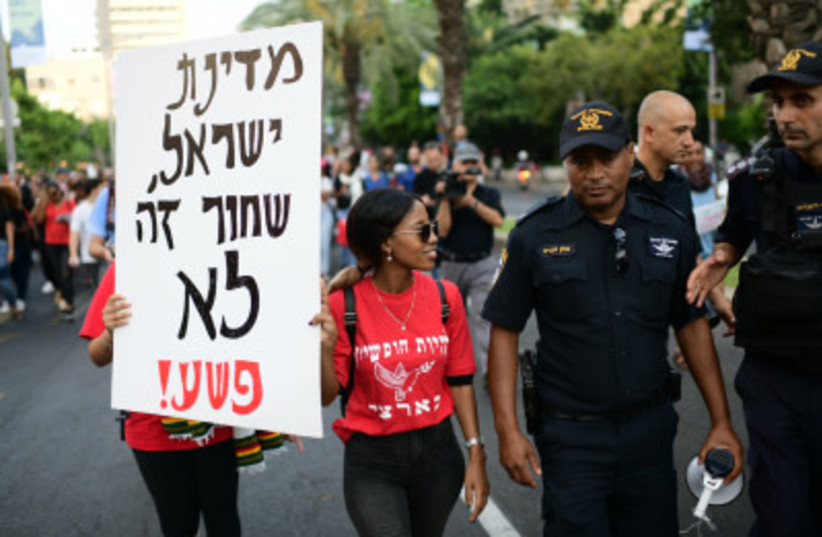On Tuesday, Liel – an Ethiopian Israeli combat soldier serving in the IDF’s Givati Brigade – experienced blatant racial discrimination at the Jilbon Farm restaurant in the Golan Heights, Channel 12 reported.
Liel and his team went out for a meal at the restaurant after a day of military training. Their young waitress skipped over Liel’s order, and when asked about it by his friends, responded by saying “kushim (a derogatory term for Ethiopians) get to eat last.”
Liel stormed out of the restaurant, with his commander and team following him in an act of protest. “This situation never happened to me before,” he was quoted as saying. “For me, it’s absurd that someone would actually say something like this in 2023.”
Liel’s angry mother demanded an explanation from the restaurant and was told by its owner: “The waitress just made a joke – maybe a bad one – but she’s only 15 years old. It really was just for humor and laughter.”
Still, the owner fired the waitress and issued a statement: “The restaurant is part of a family business that for many years has contributed a great deal to the IDF and other organizations, and we sincerely apologize for the waitress’s behavior and the damage to our dearest guests, IDF soldiers, whom we serve with kindness and love with no regard to religion, race, or sex. We’d like to embrace the entire company for the rest of their service on the Golan.”
While the restaurant ultimately took action and accepted responsibility, this is just the latest example of racism in Israeli society that needs to be rooted out.

Repeated racist incidents
Two months ago, the Israel Police dropped a case against Yaakov Dego, an Ethiopian Israeli, after falsely accusing him of kicking his dog outside chef Tom Aviv’s Tel Aviv restaurant, Coco Bambino, in December 2021.
Aviv, assuming erroneously that Dego had abused his dog, physically assaulted him, but was released after paying a fine of NIS 2,500. For his part, Dego had his dog taken away from him.
The restaurant closed its doors after security footage of the incident was released to the public. But why did it take so long for Dego to be acquitted, given that the police had the security footage right from the start?
Despite the fact that many Israelis of Ethiopian descent have succeeded in every sphere, the approximately 170,000 Ethiopian Israelis – 90,000 of whom were born in Ethiopia, and the rest in Israel – are still a marginalized minority facing discrimination in the job market, academic institutions, and everyday life.
A racist comment from a 15-year-old waitress does not come out of thin air – and neither does Tom Aviv’s racist assumption that Dego was abusing his dog. In a watershed moment in 2015, a video of Damas Pakada, an Ethiopian-born IDF soldier, being beaten up by a police officer sparked mass protests in Tel Aviv and Jerusalem by Ethiopian Israelis.
On a positive note, Pakada went on to become a decorated officer in the cyber unit of the IDF’s technology branch. “My victory is that I didn’t lose my optimism,” he later said. “I’m proof that you can overcome the challenge.”
At the time, Prime Minister Benjamin Netanyahu invited Pakada for a meeting and pledged to eradicate racism and police violence against Ethiopian Israelis. The challenge is far from over, however.
Making aliyah in several waves, including Operations Moses, Joshua, and Solomon, many Ethiopian Israelis still struggle to integrate into Israeli society amid lingering complaints of discrimination. Israeli authorities, including the government, the IDF, the police, and schools, as well as society at large, must address this issue seriously if racism is to be eradicated at every level.
As columnist Michael Freund argued in an op-ed in The Jerusalem Post after the 2015 protests, “We brought Ethiopian Jews home, but now we must make them feel at home, for their sake as well as ours.”
It is a Zionist, Jewish, and moral duty to make sure that all Israelis are treated fairly, and with humanity, compassion, and caring for one another. Jews have suffered extreme racism throughout their long history, and there must be zero tolerance for racism of any kind in the Jewish state.